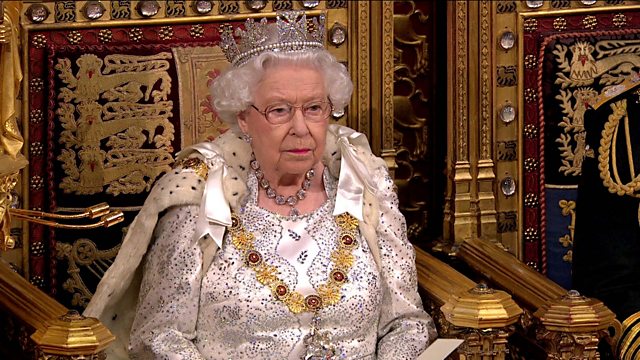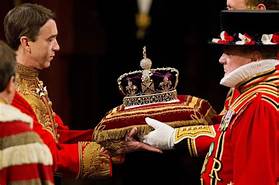As we enter another General Election I wonder how many politicians (we have no MPs in this period) over the cost of the State Opening of Parliament on October the 14th.

I recognise the "Constitutional" for this and in most legislatures hhistorically, each session of a parliament would last less than one year, ceasing with a prorogation during which legislators could return to their constituencies.or short periods, meaning that parliamentary sessions typically last for more than one year, though the length of sessions varies. Legislatures plan their business within a legislative calendar, which lays out how bills will proceed before a session ceases, although related but unofficial affairs may be conducted by legislators outside a session or during a session on days in which parliament is not meeting.
But what we saw only a fortnight was a lavish affair (where's the Tax Payers Alliance on this) and Licence's payers money wasted on a huge amount of coverage to what in affect was a Conservative Party Manifesto and in January (or not much later)we will have to go through it all again.

/https://www.thestar.com/content/dam/thestar/news/world/europe/2019/10/14/royal-pomp-uk-tradition-on-display-for-parliament-opening/LBJ110-1014_2019_082318.jpg)
So we the Tax Payer need to ask


I recognise the "Constitutional" for this and in most legislatures hhistorically, each session of a parliament would last less than one year, ceasing with a prorogation during which legislators could return to their constituencies.or short periods, meaning that parliamentary sessions typically last for more than one year, though the length of sessions varies. Legislatures plan their business within a legislative calendar, which lays out how bills will proceed before a session ceases, although related but unofficial affairs may be conducted by legislators outside a session or during a session on days in which parliament is not meeting.
But what we saw only a fortnight was a lavish affair (where's the Tax Payers Alliance on this) and Licence's payers money wasted on a huge amount of coverage to what in affect was a Conservative Party Manifesto and in January (or not much later)we will have to go through it all again.
/https://www.thestar.com/content/dam/thestar/news/world/europe/2019/10/14/royal-pomp-uk-tradition-on-display-for-parliament-opening/LBJ110-1014_2019_082318.jpg)
So we the Tax Payer need to ask
- What is the cost of the annual State Opening of the UK Parliament and how does this compare to other legislatures?
- How much of the licence payers money was spent by the BBC on this coverage and considering the very real possibility (now realised) of an General Election in a few Weeks with another State Opening in January be justified.
- Is an annual State Opening really necessary, couldn't we have at least it for a new parliament after an election and an annual low key statement akin to the budget.
- Does it really need all the ridiculous Pomp
Is it not time we ended this and bearing in mind the age of the monarch (even if you are like me an republican), should she be put through this again so soon?


